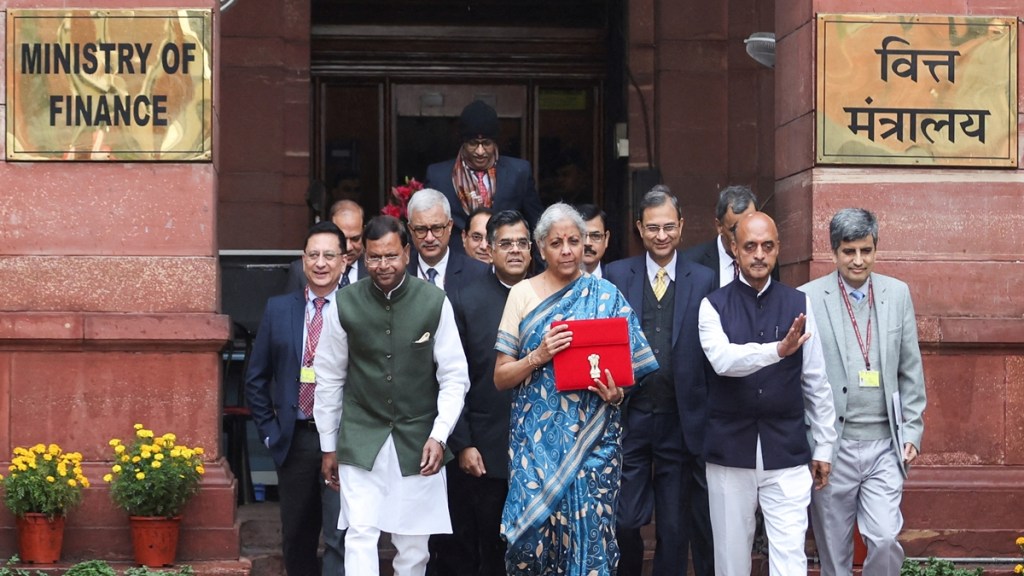– By Gaurav Mehndiratta and Palav Shah
With the Modi government embarking on its third term, the nation is standing at the cusp of unprecedented growth and transformation. The government’s continued commitment to driving growth and innovation should propel India towards a path of sustained progress and global influence thereby making it a dynamic investment destination poised to lead on the world stage amid global uncertainty.
The past ten years of the Modi Government have been focused on economic growth, digital initiatives, infrastructure development, transparency, and efficiency in tax administration.
As India marches towards the vision of becoming a 5 trillion US dollar economy by 2026, the Union Budget of 2024 set on the anvil in July is an opportune time for the Modi government to formulate policies and provide tax incentives that boost and accelerate growth, attract foreign investment, and create a tax friendly climate.
Backed by a politically stable environment, the corporate sector key wishlist encapsulated below is that the Budget 2024 will shape the landscape for a diverse array of sectors and bring in a new wave of fervent optimism to steer the country’s trajectory forward.
Extension of deadline for concessional corporate tax rate under Section 115BAB for new manufacturing companies
The sunset date of 31 March 2024 for concessional corporate tax rate of 15 percent available to new domestic manufacturing companies to be extended for at least five years to incentivize domestic production, reduce dependency on imports, boost investments both by foreign and Indian players into India and create more jobs and improve India’s manufacturing eco-system overall. The ambit of the concessional rate to be extended to certain other activities such as research and development, software development, data processing, production of films or testing services and be included in the list of qualifying businesses eligible for the concessional corporate tax rate to boost the SME sector.
Dispute Resolution and Fast tracking of CIT(A) Appeals
To augment the vision of reducing tax litigation, an additional amnesty scheme Vivad se Vishwas Scheme 2.0 be re-introduced to significantly reduce the back log of pending litigation. It is expected that the government introduces a comprehensive policy framework for reducing the pendency of CIT(A) by providing timelines by which the appeals should be disposed off and designing a framework for clubbing of pending appeals for same assessee having similar issues for different assessment years, disposing off high stake matters involving 10 crore or more on priority and matters involving 50 crore and above be directly taken up at the Tribunal level.
BEPS 2.0 – Minimum Corporate Tax Rules under ‘Pillar 2’
BEPS 2.0 – a significant development in the realm of international taxation, is an initiative by the OECD (Organisation for Economic Cooperation and Development) to address tax challenges arising from the digitalization of the economy. It aims to ensure that the multinational enterprises (MNEs) pay their fair share of taxes across tax jurisdictions.
Anticipations for the upcoming Budget revolve around the Government providing a roadmap for implementation of the Global Anti-Base Erosion Rules (GloBe Rules) under the Two-Pillar Solution with respect to Qualified Domestic Minimum Top-up tax, Under-taxed Payment Rule in the domestic tax laws of India for MNEs operating in India.
It is also expected that India would implement the concept of Subject to Tax Rule (STTR) by participation in the Multilateral Instrument (MLI) which enables the source jurisdiction to levy a top up withholding tax if the residence country’s effective income tax rate on specified income categories falls below 9 percent.
One will also need to watch out whether post introduction of Pillar Two reforms, unilateral measures introduced by India such as Equalisation Levy (EL) and Significant Economic Presence (SEP) to tax digital businesses are phased out or not.
India-Mauritius protocol
In light of Action 6 of the BEPS Inclusive Framework, India and Mauritius signed a protocol amending the India-Mauritius Double Taxation Avoidance Agreement (DTAA) introducing the Principal Purpose Test (PPT) in the Preamble to the DTAA. The PPT provides that DTAA benefit will not be granted if it is reasonable to conclude that obtaining such benefit was one of the principal purposes. The said protocol has raised a plethora of questions regarding the investments made by various overseas companies in the past. Clarity with respect to the ‘retrospective’ applicability of the protocol and taxability of capital gains with respect to investments made prior to 1 April 2017 and, whether any grandfathering clause will be introduced to safeguard the investors interests are awaited and it is expected that both the countries will issue guidelines once the protocol is ratified and made effective.
Cross border mergers
Corporate and regulatory laws in India now permit both inbound and outbound mergers pursuant to globalization and digitalization of businesses and free flows of capital and labor supporting enterprise. However, outbound mergers are generally less attractive as they are time consuming and tax neutrality is not available as in the case of inbound mergers. Inbound mergers are tax neutral i.e., not subjected to capital gains tax under Section 47. Similar tax neutrality should be extended to outbound mergers as well to provide impetus to outbound mergers.
The above reforms/ clarifications should boost investor confidence by making India as a preferred investment destination hub, considering most overseas countries are keen on evaluating and following China plus one strategy which should in turn foster economic growth and ensure fiscal sustainability for India.
(Gaurav Mehndiratta is the Partner and National Head, Corporate and International Tax, at KPMG in India; and Palav Shah is Chartered Accountant.)
(Disclaimer: Views expressed are personal and do not reflect the official position or policy of Financial Express Online. Reproducing this content without permission is prohibited.)

